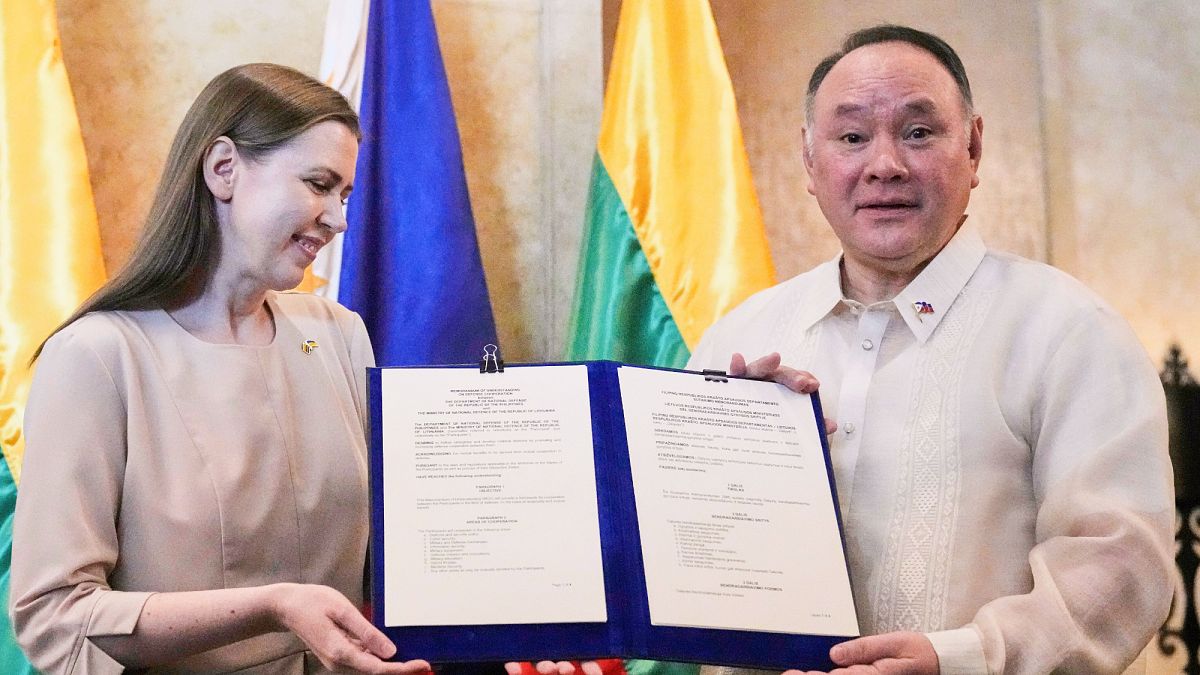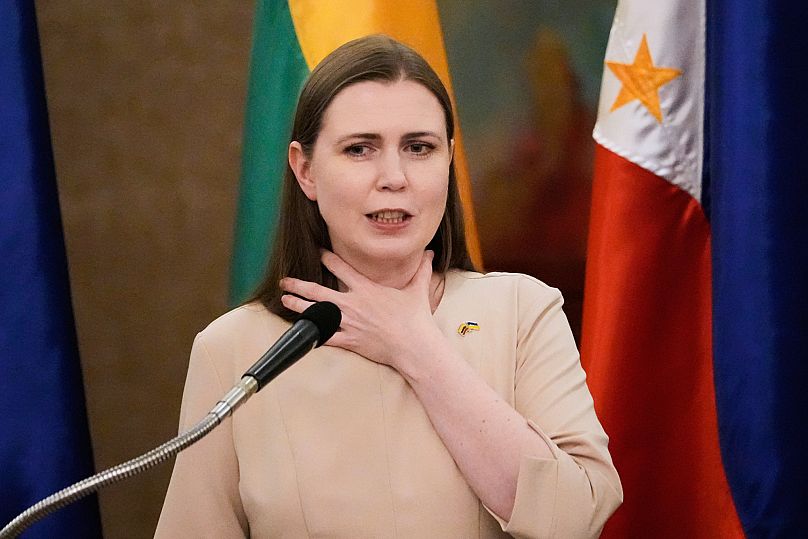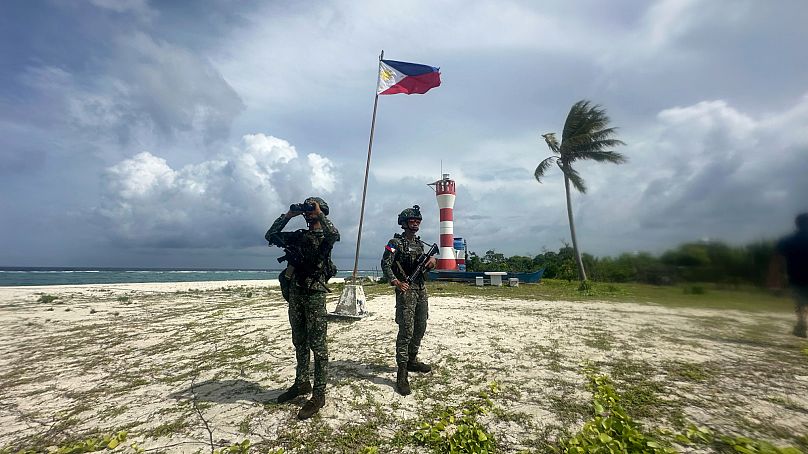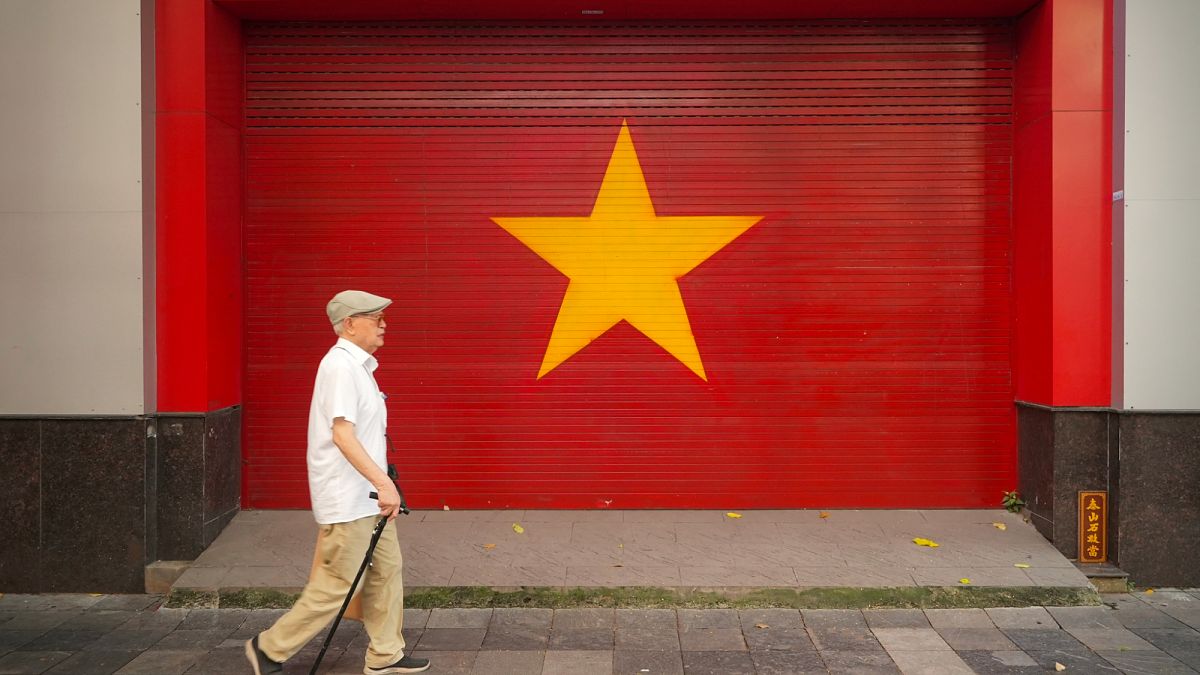Lithuania and Philippines Secure Alliance to Counter China‑Russia Authoritarian Axis

Surging Escalations in the South China Sea
The South China Sea has long been a hotbed of territorial disputes, yet the intensity of clashes between Chinese maritime forces and those of the Philippines has intensified markedly in recent years.
Key Nations Involved
- Philippines
- Vietnam
- Malaysia
- Taiwan
- Brunei
Historical Context
These countries have maintained a prolonged standoff over overlapping maritime claims, seeking control of strategic waters rich in resources and global shipping lanes.
Recent Escalations
In the past few years, encounters between the Chinese coast guard and the Philippine navy have become increasingly frequent, involving close-quarters maneuvers and standoff situations that heighten regional instability.
Implications for the Region
Such confrontations threaten not only bilateral relations but also the broader security environment, prompting calls for diplomatic resolutions and adherence to international maritime law.
Lithuania & Philippines Forge New Security Partnership
In a historic move, Lithuania and the Philippines have embarked on a fresh military collaboration, underscoring concerns over rising regional tensions, particularly from China and other perceived aggressors.
Signed in Manila – A Strategic Memorandum
On Monday, Defence Ministers Dovilė Šakalienė and Gilberto Teodoro Jr. sealed an agreement in the Philippine capital that seeks to deepen defense ties on multiple fronts.
Key Areas of Cooperation
- Cyber Security – Joint initiatives to safeguard critical digital infrastructure.
- Defense Industry – Shared development of technology and production capabilities.
- Munition Production – Collaborative manufacturing of weapons systems.
- Maritime Security – Coordinated efforts to protect sea lanes and maritime interests.
Background of the Alliance
Following remarks by Lithuania’s minister at an international security forum in Singapore last month, the focus is on countering what she calls an “authoritarian axis” comprising Russia, China, North Korea, and Iran.
She emphasized the necessity for pro‑democracy nations to unite in response, stating that a coordinated strategy is essential to address the evolving threat landscape.
Looking Ahead
With the memorandum now inked, both parties anticipate a robust framework that strengthens regional stability while bolstering their respective security postures.

Defense Minister Calls Out Global Authoritarian Collaboration
During a press briefing held on June 30, 2025, Lithuania’s Minister for National Defence, Dovilė Šakalienė, joined Philippine officials to discuss rising threats to international peace and democratic values.
Key Observations
- Šakalienė stressed that “authoritarian regimes” are coordinating with unprecedented efficiency.
- She pointed to the Ukrainian conflict as a stark illustration of how these alliances are “severely undermining stability.”
- The minister warned that the combined actions pose a direct threat to freedom and democracy worldwide.
- She added that “we cannot afford to let these dangers be allowed to flourish.”
Specific Concerns Raised
- China’s expansive claims over the South China Sea, directly affecting Filipino fishermen.
- Aggressive policies toward Taiwan, which have heightened tensions in the region.
Reactions
At the time of the statement, Chinese officials had not offered a public response.
Context and Implications
Šakalienė’s remarks underscore a growing apprehension that authoritarian alliances are shaping global affairs, challenging the principles of openness and democratic governance. Her comments suggest a call for international solidarity against such coordinated threats.
South China Sea stand-off
Escalating Maritime Tensions in the South China Sea
The Philippines, Vietnam, Malaysia, Taiwan and Brunei have endured long‑standing territorial disputes over the South China Sea. In recent years, clashes between Chinese coast guard vessels and Philippine naval assets have intensified, marking a sharp uptick in maritime confrontations.
Key Dynamics of the Heightened Conflict
- Repeated Incidents – Chinese water‑cannon firings and aggressive maneuvers target both government vessels and fishing boats belonging to the Philippines.
- Territorial Claims – China’s stance asserts that the contested waters have been part of Beijing’s domain since ancient times, justifying its defensive actions.
- Regional Implications – The dispute impacts diplomatic relations among the involved countries, raising broader security concerns.
Implications for Maritime Governance
These developments underscore the need for clearer communication, conflict‑resolution mechanisms, and adherence to international maritime law to prevent further escalation and preserve regional stability.

Philippine Marines Safeguard West York Island Amid Ongoing South China Sea Dispute
On 5 June 2025, a contingent of Philippine Marines maintained a vigilant presence on West York Island—a key location among the Philippine‑held islands in the South China Sea. The deployment underscores the nation’s stance against China’s expansive claims that were invalidated by a 2016 international arbitration ruling grounded in the 1982 UN Convention on the Law of the Sea.
Strategic Shift: Documenting Beijing’s Actions
Rather than passive resistance, the Philippines has adopted a proactive approach by meticulously recording instances of Chinese maritime assertiveness. This documentation serves to expose the confrontations and garner global sympathy for Filipino fishers who operate within their own territorial waters.
- Highlighted Content: The Philippines shares harrowing videos and photographic evidence of Chinese vessels threatening local fishermen.
- Safety Concerns: These materials showcase how local residents—who rely on the sea for livelihood—are being pressured and intimidated.
Leadership Voices the Determination to Defend Maritime Rights
Philippine officials have emphasized the need to collaborate defensively. One spokesperson noted:
“When they collaborate to intimidate us, we must respond in a united defiance.”
Another official stressed resisting unilateral amendments to maritime law, warning that such changes could skew global order in favor of dominant powers at the expense of smaller nations.
Expanding Alliances Beyond Washington
President Ferdinand Marcos has initiated strategic partnerships not only with Washington but also with European nations, epitomized by a recent agreement with Lithuania. This alliance aims to extend a protective network across Asia and the West, reinforcing the Philippines’ territorial sovereignty amid Chinese provocations.





